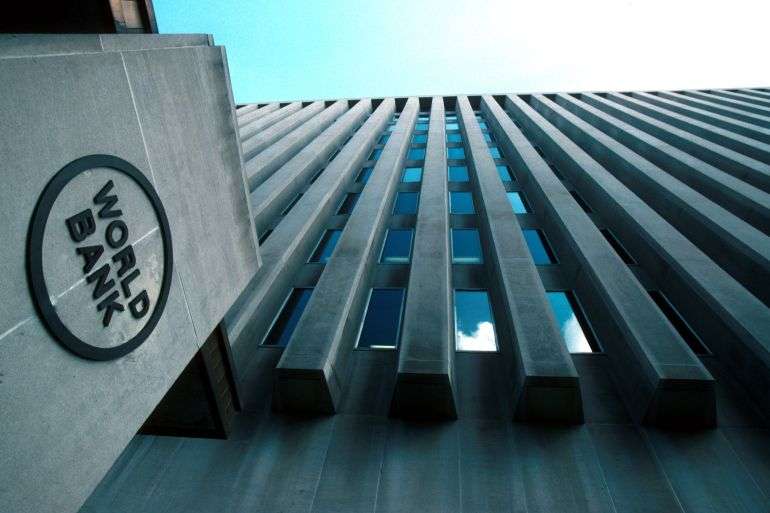Back at home, the managers of the Ghanaian economy started whipping hopes into Ghanaians with the prospects of the country leaving its economic woes behind come next year as political campaign gathers steam. However, such ‘false’ hopes looks gloomy and nearly impossible as the global lender – the world Bank, cuts next year’s growth forecast as rate hikes bite across the globe.
As expected, according to the world bank’s measure, developing countries will bear the brunt as two-thirds of developing economies will see lower growth than in 2022, and further dealing a major setback to coronavirus pandemic recovery while the Russia Ukraine war rages on.
Unlike this year’s growth outlook where the World Bank said global 2023 growth outlook has improved, it indicated that the 2024 outlook has worsened on the back of higher interest rates and tighter credit.
Recently, the World Bank raised its 2023 global growth outlook as the United States, China and other major economies have proven more resilient than forecast, but stressed that higher interest rates and tighter credit will take a bigger toll on next year’s results.
Real Global Gross Domestic Product
Real global gross domestic product (GDP) is set to climb 2.1 percent this year, the World Bank said in its latest Global Economic Prospects report. That’s up from a 1.7 percent increase forecast that was issued in January, but well below the 2022 growth rate of 3.1 percent.
The development lender cut its 2024 global growth forecast to 2.4 percent from 2.7 percent in January, citing the lagged effects of central bank monetary tightening and more restrictive credit conditions that were reducing business and residential investment.
These factors, again, will slow growth further in the second half of 2023 and into 2024, according to the World Bank. However, the bank released a new 2025 global growth forecast of 3 percent.
World Bank Chief Economist, Indermit Gill, meanwhile, put a gloomy spin on the new forecasts, saying that 2023 would still mark one of the slowest growth years for advanced economies in the last five decades and situation is not particularly peculiar to only the developed world, but the developing as well.
Gill noted that even by the end of next year, a third of the developing world will not beat the per-capita income levels that they had at the end of 2019, stressing that’s five lost years for saying that’s a third of the world’s countries.
Earlier, the World Bank had warned that global GDP was slowing to the brink of recession, but since then, strength in the labour market and consumption in the advance countries like US had exceeded expectations, as has China’s recovery from COVID-19 lockdowns.
In Ghana, it is forecast that the Ghanaian economy will expand by a weak 2.9% in 2023, after growth of 3.1% in 2022. Factors such as fiscal austerity, high inflation and restrictive financial conditions are the expected factors likely to dampen private consumption and investment through 2023, and spillover to next year, clouding economic growth prospects in 2024.
As a developing country, exogenous factors play pivotal role in the success or failure of Ghana’s economy. As such, keeping close eyes on the developed economies to adjust policies to suit the countries economy is the way to go.
In the US for instance, growth for 2023 is now forecast at 1.1 percent, more than double the 0.5 percent forecast in January, while China’s growth is expected to climb to 5.6 percent, compared to a 4.3 percent forecast in January after COVID-reduced growth of 3 percent in 2022.
The World Bank, however, halved its previous 2024 US growth forecast to 0.8 percent, and cut China’s forecast by 0.4 percentage point to 4.6 percent. This will equally have adverse effects on the Ghanaian economy.
The eurozone also got a forecast increase to 0.4 percent growth for 2023 from a flat outlook in January, but the forecast for next year was also cut slightly.
The Banking Sector Stress
Recent banking sector stress is also contributing to tighter financial conditions that will continue into 2024, the lender said.
It cited one potential downside scenario where banking stress results in a severe credit crunch and broader financial market stress in advanced economies. This would likely cut 2024 growth by nearly half to just 1.3 percent – the slowest pace in 30 years outside of the 2009 and 2020 recessions.
In another scenario where financial stress propagates globally to a far greater degree, the world economy would fall into recession in 2024, the World Bank added.
The bank said Inflation is expected to gradually edge down as growth decelerates and labour demand in many economies softens and commodity prices remain stable. But it added that core inflation is expected to remain above central bank targets in many countries throughout 2024.
READ ALSO: School Feeding Caterers Not All NPP Members- Minister of Gender























